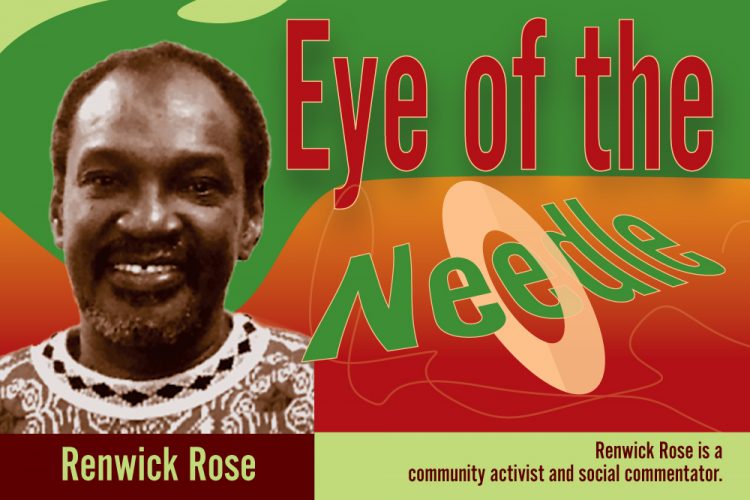The NDP: a credible alternative?

In spite of the fallout which affects governments and leaders in office for a long time, the Unity Labour Party (ULP) remains in office, having just celebrated 21 years of its tenure so far. While undoubtedly this is due to its record of accomplishment, a major contributory factor has been the failure of the opposition New Democratic Party (NDP) to present itself as a serious alternative to the government, offering fresh approaches and innovative policies in keeping with the realities of our situation.
Thirteen years ago, in 2009, the NDP inflicted a defeat at the polls of the ULP in the referendum on the constitution following a comprehensive five-year public education exercise. One can comment one way or the other about the reasons for that defeat, including both external involvement and the dirty campaign which had little to do with the essence of the proposed constitution, but the reality is that the referendum ended with the “No” campaign waged by the NDP gaining popular support.
It seemed then, as the then NDP leader had stated, that “the NDP bus was rolling”. Unfortunately, in three successive elections since then, it was demonstrated that as far as attaining government was concerned, “the bus” was rolling in the wrong direction. Seemingly well-placed before polling day, the NDP managed to proverbially “snatch defeat from the jaws of victory” losing three successive general elections in 2010, 2015 and 2020. Each time, rather than engage in sober reflection and reorganisation, it has, in Donald Trump style, chosen the path of self-denial, charging stolen elections and wasted energy and money on unrewarding court challenges.
Worse, as desperation set in, the gang of anarchists and rabble-rousers who seem to wield influence over the party’s leadership has virtually been leading the NDP down a path of confrontation and even violent altercations. It appears that the NDP remains obsessed with what it gives as its reason for its removal from office by the electorate in 2001, the so-called “roadblock revolution” and is bent on engineering its own version hoping desperately to be similarly rewarded.
However not only is its analysis flawed, but significantly, time and circumstances have changed, and the party seems unable to adapt to the evolving political climate or to seek new and more positive influences.
At the party’s convention earlier this year, the conclusion was drawn that the NDP is now “stronger than ever”. Possibly that analysis was based on the results of the last elections in 2020 which gave the party a majority of the popular votes, but the ULP also experienced that in 1998 yet lost the election. It must also be borne in mind that being the “strongest” does not always guarantee victory. A cricketing analogy may drive home the point. In 1983, the all-conquering West Indies lost its world champion title to India, then mere cricketing minnows in one-day terms, in the World Cup Final at Lord’s. The West Indies team has not lifted the trophy almost forty years later.
I find the political strategy, if there is one, and certainly the tactics of the NDP, puzzling and incomprehensible in the present circumstances. Clearly, besides the faithful on both sides, there are thousands of non-committed voters including many young people open to new ideas and perspectives. Are the parties, both of them, going to rely on the politics of the past to woo the uncommitted? At least the ULP has its record in office as its trump card, what is the NDP offering?
Based on its pronouncements, that party seems to be relying heavily on the proposed Citizen-by-Investment Programme (CIP), which it claims would allow government to significantly reduce taxes and provide funding for investment and social programmes. It points to what it claims as the success of such programmes in other OECS states especially St.Kitts/Nevis and Grenada.
But this approach has been vigorously attacked by Prime Minister Gonsalves as nothing but a crude attempt to “sell passports” to often very shady characters. Recently moves by the USA, the UK and the European Union to deny such passport holders access to visa free entry must be damaging to the credibility of this proposal though it is too early to say to what extent.
Another puzzling aspect of the NDP’s economic policy emerged last month when Deputy Leader St Clair Leacock, widely regarded as its chief economic spokesperson, virtually proposed a limit on foreign investment, citing the swathe of foreign investments being currently undertaken. Mr. Leacock’s concerns were that if foreign investment continued at such a rate, then there was little choice of the NDP coming to power. So, the accession of the NDP to power must take priority over our economic development. It is a recurring theme if one remembers the opposition to the construction of the Argyle International Airport. These are but some outstanding examples of what can only be considered backwardness in the approach to national development. The party also needs to understand and respond positively to the need for alternative vision and leadership. It cannot be forever in thrall to those bent of slander and confrontation and afraid to denounce those who espouse unlawful and often violent means to achieve no matter how legitimate the ends.
Is the NDP a leader or a blind and misguided follower?
Renwick Rose is a community activist and social commentator.











